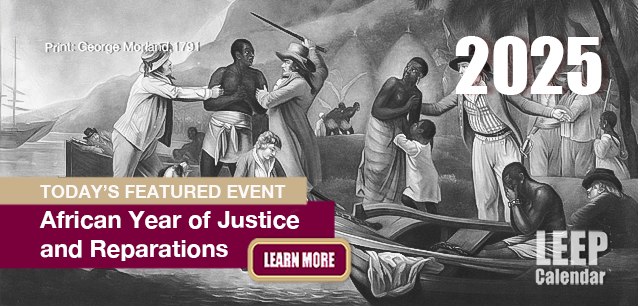 AD
AD
Country
- Africa
- Alcohol, Tobacco & Drugs
- Animals, Fish, Insects & Birds
- Anniversaries
- Australia
- Books
- Brazil & S.America
- Buddhism
Category
- Afghanistan, AF
- Aland Island, AX
- Albania, AL
- Algeria, DZ
- American, Samoa, AS
- Andarra, AD
- Angola, AO
- Anguilla, Al
Event Type
- Daily
- Weekly
- Annual
- Recurring
Duration
- All
- 1 Day
- 2 Day
- 3 Day
- 4 Day
- 5 Day
- 6 Day
Event Type
- Daily
- weekly
- Annual
- Recurring
Event Type
- Daily
- weekly
- Annual
- Recurring
Today is: September 09
Bonza Bottler Day™, Intl
Fetal Alcohol Spectrum (FAS) Disorders Awareness Day, Ntl.
Independence Day, (TJ)(1991)
Irish Potato Famine Begins, (IE)(1845)
MTV Music Video Awards
National Day, (KP)(1948)
Prayers and Remembrance, National Days of
Protect Education from Attack, Intl. Day to
Teddy Bear Day
Wiener Schnitzel Day
Wonderful Weirdos Day
Child Protection Week, Ntl. (AU)
Child Protection Week, Ntl. (AU)
Direct Support Professionals Recognition Week, Ntl.
Fairtrade Fortnight(UK)
Folic Acid Awareness Week
Headache and Migraine Awareness Week, Ntl. (AU)
Heritage Open Days (UK)
Heritage Open Days (UK)
Line Dancing Week, Ntl.
Music Week and Awards, Canadian Country (CA-ON)
Nephrology Nurses Week
Onam (H)(IN-KL)
Pitru Paksha (H)
Pitru Paksha (H)
Remember a Charity in Your Will Week (UK)
Rice Week, Ntl. (UK)
Scottish Food and Drink Fortnight (UK)
Semana de La Lactancia Latina
Semana de La Lactancia Latina
Sexual Health Week (UK)
Substitute Teacher Appreciation Week
Suicide Prevention Week
Toronto International Film Festival (CA-ON)
Toronto International Film Festival (CA-ON)
United Nations General Assembly (US-NY)
Waffle Week, Ntl
Alcohol and Drug Addiction Recovery Month, Ntl.
Alzheimer's Month, World
Animal Pain Awareness Month, Intl.
Arthritis Month (CA)
Atrial Fibrillation Awareness Month, Ntl.
Attendance Awareness Month
Attendance Awareness Month
Attention Deficit Hyperactivity Disorder (ADHD) Month
Baby Safety Month
Be Kind to Editors and Writers Month
Beach Month, World
Bear Necessities Month
Bear Necessities Month
Better Breakfast Month
Bhadon (S)
Blackpool Illuminations (UK)
Blue September (AU/NZ)
Blueberry Popsicle Month, Ntl.
Bourbon Heritage Month, Ntl.
Brain Aneurysm Awareness Month, Ntl.
Campus Fire Safety Month, Ntl.
Campus Safety Awareness Month, Ntl.
Candle Month, World
Candle Month, World
Chicken Month, Ntl.
Childhood Cancer Awareness Month, Intl.
Childhood Obesity Awareness Month, Ntl.
Childhood Obesity Awareness Month, Ntl.
Children's Awareness Month
Cholesterol Education Month, Ntl.
Civil Service Month (PH)
Civil Service Month (PH)
Classical Music Month
Clean-up Month, Intl.
Clean-up Month, Intl.
College Savings Month
Coupon Month, Ntl.
Courtesy Month, Ntl.
Craniofacial Acceptance Month
DNA, Genomics and Stem Cell Education Month, Ntl.
Dementia Awareness Month (AU)
Democracy Month, Ntl.
Dystonia Awareness Month (AU)
Dystonia Awareness Month (CA)
Elul (J)
Fall Hat Month
Fashion Month (Spring/Summer)
Festival of Learning Have a Go Month (UK)
Festival of Learning—Have a Go Month (UK)
Food Hero Month, Be a, Ntl.
Food Safety Education Month, Ntl.
Footy Colours Day (AU)
Fruits and Veggies, More Matters Month
Fun Fair Month, World
Fun Fair Month, World
Gold Out Month, Pediatric Cancer
Gospel Music Heritage Month, Ntl.
Grains Month, Whole
Great Cycle Challenge (US)
Guide Dog Month, Ntl.
Guide Dog Month, Ntl.
Gynecologic Cancer Awareness Month
Happy Healthy Cat Month
Head Lice Prevention Month
Healthy Aging Month
Heart Month (IE)
Heart Month (IE)
Honey Month
Hunger Action Month (CA)
Hunger Action Month
ITP Awareness Month
ITP Awareness Month
Idiopathic Thrombocytopenic Purpura (ITP) Awareness Month
Infant Mortality Awareness Month, Ntl.
Intergeneration Month
Intergeneration Month
Leukemia and Lymphoma Awareness Month
Leukemia and Lymphoma Awareness Month
Library Card Sign-Up Month, Ntl.
Life Insurance Awareness Month, Ntl.
Liptember (AU)
Liptember (AU)
Low-Cholesterol, Low-Fat Pizza Bake, Great American
Mold Awareness Month
Mushroom Month, Ntl.
National Month (CL)(1810)
Neighbor Month
Newborn Screening Awareness Month
Obesity Awareness Month, Childhood Ntl.
Odd Fellows Friendship Month
Odd Fellows Friendship Month
One-on-One Month
Organic Month, National (CA)
Organic September (UK)
Ovarian Cancer Awareness Month (CA)
Ovarian Cancer Month (US)
PCOS Awareness Month
PCOS Awareness Month
Pain Awareness Month
Pain Awareness Month
Papaya Month, Ntl.
Papaya Month, Ntl.
Passport Month, Ntl.
Peace Consciousness Month, Ntl. (PH)
Peace Consciousness Month, Ntl. (PH)
Peripheral Artery Disease Awareness Month, Ntl.
Peripheral Artery Disease Awareness Month, Ntl.
Pet Insurance Month, Ntl. (US/CA)
Pet Sitter Education Month
Pet Sitter Education Month
Photos Month, Save Your
Photos Month, Save Your
Piano Month, Ntl.
Pleasure Your Mate Month
Preparedness Month, Ntl. (2001)
Prostate Cancer Awareness Month (US/CA)
Rabi'ul-Awwal (M)
Recovery Month, Ntl.
Reye's Syndrome Awareness Month
Rice Month, Ntl.
Rule of Law Month (PH)
Rule of Law Month (PH)
Running of the Balls (US-TN)
STEPtember
Scroll Free September (UK)
Self-Improvement Month
Self-Improvement Month
Service Dog Month, Ntl.
Sewing Month, Ntl.
Sexual Health Awareness Month
Sexual Health Awareness Month
Shameless Promotion Month
Sickle Cell Month, Ntl.
Skincare Awareness Month, Ntl.
Sourdough September
Speak Out Month, World
Spinal Cord Injury Awareness Month, Ntl.
Sports Eye Safety Month, Ntl.
Square Dancing Month, Intl.
Straw Free September
Subliminal Communication Month
Suicide Prevention Month (US/CA)
Suicide Prevention Month (US/CA)
Therapy Dog Awareness Month (AU)
Tiger Month, Intl. Save a
Tiger Month, Intl. Save a
Update Your Resume Month
Urology Awareness Month (UK)
Urology Awareness Month (UK)
Vascular Disease Awareness Month
Vascular Disease Awareness Month
Wilderness Month, Ntl.
Wine Box Month, Intl.
Wine Month Ntl., California (US-CA)
Women's Friendship Month, Intl.
Workforce Development Month, Ntl.
Yoga Awareness Month, Ntl.
Youth Leadership Month, Ntl.
LEEP Calendar
Scroll to explore events active on this date.
Additional Events on LEEP
LEEP INK FEATURES

August? Absolutely!
In August, we live through the Dog Days of Summer. It's hot and often humid, and those who can leave for better climates do. Down south, winter is in full force. August is also known as "the ...

In The Heat of July: July 2025 Events
Is it hot enough (or cold enough if you're below the equator) for you yet? There is actually a day for that! Like every month, I pick a diverse collection of events you may or may not know about. This ...

May Blooms: Events in May 2025
Along with October, May is one of the most densely packed months of the year. It's before the summer humidity and the last whole month of the school year. The weather is warming in t...
About National Video Games Day
Technology & Telecom
Ends: Sep 12, 2025
DESCRIPTION:
National Video Game Day celebrates video games.
A BRIEF HISTORY OF VIDEO GAMES
Thomas T. Goldsmith Jr. and Estle Ray Mann submitted a patent on January 25, 1947, for the "Cathode Ray Tube Amusement Device," which, though never put into production, laid the foundation for video games.
In 1948, a chess simulation game created by Alan Turing and David Champernowne became the first video game. It would have to wait a while to be played. At the time, computers didn't have enough memory to run complicated scripts.
In 1950, Bertie the Brain, a tic-tac-toe arcade game, premiered using a purpose-built machine.
In 1952, Pilot ACE was the first game created that could run on an IBM. A video version of checkers followed it.
In 1954, the University of Michigan was the first to develop a graphics-based computer game that simulated billiards. The cue maneuvered via a joy stick and knob.
By 1958, the game of tennis had made it to video. Business simulation games soon followed, taking "gaming" into the 1960s.
The first purpose-built entertainment game originated with MIT and Harvard in 1962 from the minds of Martin Graetz, Steve Russell, and Wayne Wiitanen. It was called Space War and was popular among the various academic and research institutions with mainframe computers.
At the time, a singular language did not exist that would allow programming across various platforms. That changed with BASIC in 1964.
The first commercial video game was a coin-operated arcade game developed by Bill Pitts, and Hugh Tuck at Stanford University called Galaxy Game. At $20,000, it was too expensive for most arcade owners, and Galaxy Game never advanced past the prototype stage.
Concurrently Nolan Bushnell and Ted Dabney were working on a much lower-cost version called Computer Space, which became the first video game sold commercially. Computer Space's creator would later be known as Atari, Inc. Pong would be the first game released under the new company in 1972, and an entire new industry was born.
Magnavox saw an opportunity and developed the first in-home video game console that used a television set as the screen. Ralph Baer first put forth the concept in the 1950s. However, the technology needed to catch up with his ingenuity, which would take a decade and a half.
The Odyssey went on sale in September 1972 and lasted until 1975. A lack of marketing strategy in distribution and channels spelled the ultimate doom for the product. However, it paved the way for Atari, Nintendo, and a host of other companies to create one of the most lucrative and successful entertainment and learning industries ever seen.
David Earle created Nation Video Game Day. His company Kid Vid Warriors, sponsored it until 1996, when it moved from July to September. In 1997, the event settled on September 12 annually, without a sponsor.
VIDEOS
Currently, this event does not have supporting videos.
SUPPORTING DOCUMENTS
Currently, this event does not have supporting documents.
ADDITIONAL IMAGES
Currently, this event does not have supporting images.
Where would you like to go now?
 AD
AD
By using this site. You are agreeing to use of cookies. Learn more in our Privacy Policy
/footer-logo.svg)
LEGAL: Excerpts and links may be used, provided that full and clear attribution is given to Jubilee LLC and LEEPCalendar.com, with appropriate and specific direction to the original content (Page URL). Additional documents, embedded videos and additional image rights retained by their creators and are provided to increase understanding of the event or topic.
Jubilee LLC reserves the right to accept or reject inclusion of events in this calendar. The appearance of an event in LEEP Calendar does not imply endorsement of the event, nor the organization championing the event by Jubilee LLC, its stakeholders, customers or subsidiaries. All dates, contact information, URLs, addresses, and information relating to any event, promotion or holiday are subject to change without notice and should be treated as estimated. Jubilee LLC, our stakeholders, customers and subsidiaries cannot warrant accuracy. Users of this application are solely responsible for verifying actual event date with organizers and additional sources prior to committing resources, financial, human or otherwise.


































































